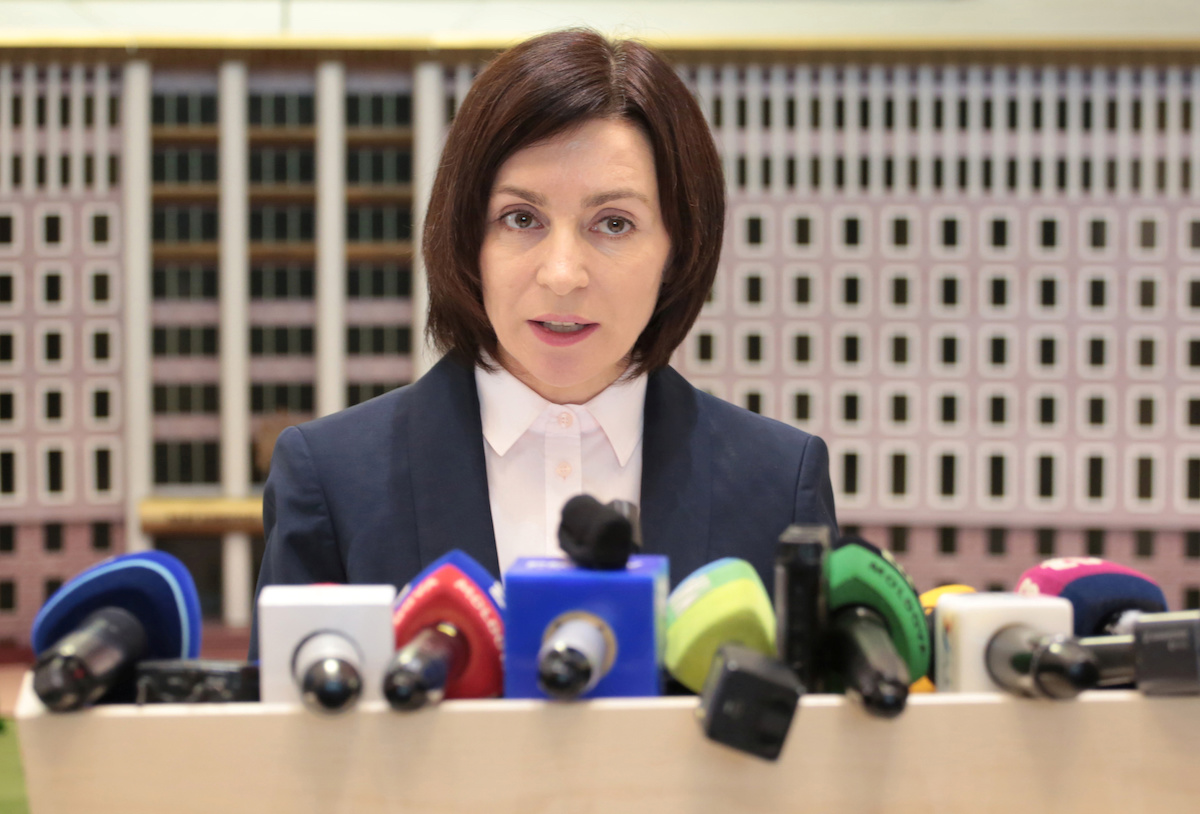Diarchy in Moldova - parliamentary approval of gov’t causes political crisis
A political crisis is developing in Moldova.
Yesterday the parliament finally formed a ruling coalition and appointed a new government, more than three months after the elections.
The coalition includes the pro-Russian Socialist Party and the pro-European bloc ACUM. However, the parliament and the new government lasted only one night – the constitutional court dissolved the parliament and removed the president from office. In response, the parliament announced the usurpation of power by the Democratic Party oligarch Vladimir Plahotniuc.
His supporters have begun to gather in the capital for a demonstration.
The coalition and new government are against the “seizure of power” by the oligarch
MPs of the ACUM bloc and the Socialist Party held an emergency meeting of the parliament on June 8. According to NewsMaker, they managed to elect a speaker (a representative of the socialists, Zinaida Grechany) and three vice-speakers, and also nominate the ACUM leader, Maya Sandu, and approve the composition of the new government.
The parliament has also adopted a declaration, according to which Moldova is recognized as a “captured state” – meaning the establishment of control over state institutions by the oligarch.
The demonstration was attended by representatives of the diplomatic corps, including the head of the EU mission in Moldova, the Russian ambassador, representatives of the US embassy, the Netherlands and others.
At the same time, representatives of the Democratic Party of Moldova were not present at the meeting, and electricity was cut off to the parliament building and there was no staff.

Counter strike – dissolution of parliament
However, even before the decisions of the new parliament became known, the country’s constitutional court declared them illegal.
ZDG reports that the constitutional court announced that the legal period expired on June 7, when the parliament elected on February 24 was to form a government.
However, many deputies and lawyers say that the constitution marks a period of three months, not 90 days, which means that the deputies had another day at their disposal to resolve the issue of forming a new government.
And on June 9, the Constitutional Court temporarily deprived Igor Dodon (who represents the Socialist Party and supports the new government elected by parliament) of the presidency. The court appointed Acting President Pavel Philip, who after the election served as prime minister. Filip immediately announced the dissolution of parliament and the appointment of new elections on September 6.
In Chisinau, protesters gathered supporters of the Democratic Party, which does not recognize the decisions of parliament. The police has strengthened the protection of public institutions.

New coalition resisting
Despite the decisions of the constitutional court and the government, the parliament continued its work on Sunday. MPs adopted a declaration, according to which the government of Filip was outlawed, and also expressed no confidence in the latest decisions of the constitutional court.
Maia Sandu, who was appointed prime minister by parliament, gave a briefing during which she called on state institutions to abide by the law and allow the new government to act. She also appealed to the police and carabinieri with a request to comply with the law.
President Igor Dodon said he would not call on supporters to go out, as he was afraid of provocations by the Democratic Party, but he was counting on international pressure on the former government to make them recognize the decisions of the parliament.
The leader of the parliamentary elections in Moldova, held on February 24, 2019, was the Socialist Party, with 31.15 percent of the votes, followed by the ACUM Bloc – 26.84 percent and the Democratic Party – 23.62 percent.
The political party Shor won 8.32 percent of the vote. In single-mandate constituencies, however, Democrats scored more mandates (19), followed by socialists (15), ACUM (11) and PCA (2). Thus, the socialists have 35 mandates, the Democrats 30, the ACUM bloc 26, and the Shor party has seven mandates, while three MPs are nonpartisan.



















